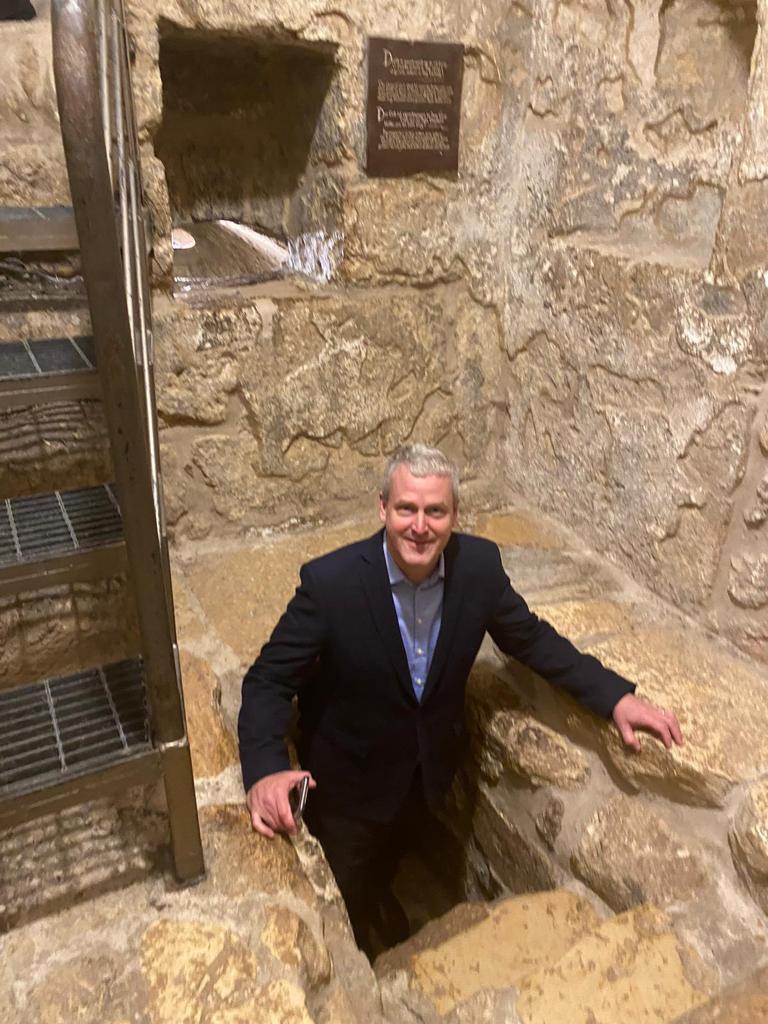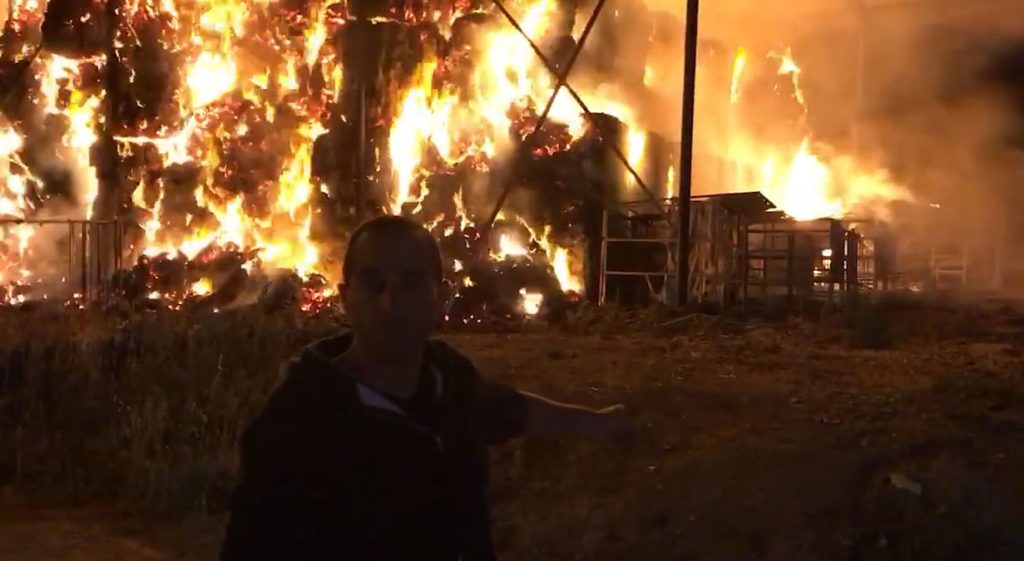
On Tuesday, the State Department summoned Israeli Ambassador to the U.S. Michael Herzog to demand an explanation for the Knesset’s abrogation of the 2005 law banning Jews from living in four communities in northern Samaria. That law was passed in the framework of Israel’s failed plan to disengage from the Gaza Strip and northern Samaria.
In August 2005, Israel expelled 10,000 Jewish citizens from Gaza and northern Samaria in the hopes that the Palestinians would take the areas and build a mini-Singapore. Instead, they built a mini-Afghanistan.
The Knesset’s decision to abrogate the law was a rare example of a democracy acting to correct its prior mistake. But that’s not how the Biden administration saw it.
Around the same time Ambassador Herzog was summoned, the White House said the law was a breach of Israel’s 2004 agreement with the Bush administration. That agreement, which was given expression in an April 2004 letter then-President George W. Bush sent to then-Israeli Prime Minister Ariel Sharon, essentially said that in exchange for Israel’s forcible uprooting of the Jewish communities in Gaza and northern Samaria, the Bush administration would accept the permanence of major Jewish communities in the rest of Judea and Samaria.
What is notable about the Biden administration’s accusation is that not only did the Obama administration breach the 2004 deal—it denied the deal existed, in the first place. In June 2009, then-Secretary of State Hillary Clinton said, “in looking at the history of the Bush administration, there were no informal or…enforceable agreements.”
Merely denying documented history would be bad enough. But the broader policy framework that informed the Biden administration’s outburst is much worse than a dispute about whether northern Samaria should be Judenrein or not.
On March 13, the Office of Palestinian Affairs in the U.S. embassy in Jerusalem posted on Twitter photos of its director, George Noll, visiting the Tomb of Lazarus north of Jerusalem. The post referred to the tomb as “an important religious site…maintained by the Palestinian Authority’s (PA’s) Ministry of Tourism.” It praised the PA’s “work preserving beautiful historical and religious sites like this throughout the West Bank.”
Many Israelis were shocked by the post because far from “preserving beautiful historical and religious sites” throughout Judea and Samaria, the PA is deliberately destroying them.
For instance, the Church of John the Baptist in Sebastia in northern Samaria, where John the Baptist was reportedly buried, is now a Hamas flag-festooned ruin. The church’s devastation is collateral damage in the PA’s effort to destroy any physical record of Jewish history in the cradle of Jewish—and Christian—civilization.
Sebastia is the Arabic name for Samaria, the ancient capital of the biblical Kingdom of Israel, and one of the most important Jewish and world heritage sites in the region—and perhaps the world. But with direct support from UNESCO, the PA is destroying Sebastia, rewriting history. Last week, for instance, Palestinian workers paved a new road in the middle of ancient Sebastia, uncovering a Jewish burial cave from the Second Temple period. The workers destroyed the cave and threw a pig’s corpse inside.
Sebastia is only one of hundreds of Jewish heritage sites that the PA is deliberately destroying. Not only is the U.S. not condemning the destruction, through Noll—it is praising it.
And it gets worse. On Monday, the State Department published its 2022 Country Report on Human Rights Practices. Its section on Israel is not merely hostile—it effectively rejects the legitimacy of Israel’s right to exist. The State Department report attacks Israel for denying prison furloughs to Palestinian terrorists. It attacks Israel for fighting terrorism. And it attacks Israel for preventing unrestricted illegal immigration.
Even worse, the State Department report effectively denies that the Jewish state has the right to enforce its laws toward its Arab citizens.

Take, for instance, the report’s section on Israel’s efforts to combat illegal Bedouin land seizures in southern Israel. According to Regavim, an Israeli NGO that documents illegal Arab construction, Israel’s Bedouin minority has seized land in the Negev that is larger in area than Jerusalem, Tel Aviv, and Beersheba combined. As Naomi Kahn, Regavim’s international director, explains, through this illegal land seizure, some 82,000 Bedouin—who make up less than 1% of Israel’s population—have illegally seized around 150,000 square acres of land. The other 99% of Israelis reside on around 232,000 square acres of land. According to a study published this week by HaShomer HaHadash, a volunteer organization that protects Israeli farmland from Arab agricultural terrorism, Bedouin protection rackets in Israel have become pervasive. A whopping 80% of Israeli business owners now pay the gangs protection money.
All of this is known to U.S. embassy staff. But it has clearly made no impression on the State Department. As it did throughout the report, the State Department based its claims in relation to Bedouin land issues on contentions put forward by anti-Israel NGOs. These groups, funded almost exclusively by foreign governments and foreign foundations, reject Israel’s right to exist, support its boycott, and accuse the only liberal democracy in the Middle East of being an “apartheid” regime. By the State Department’s own definition, all of these positions are anti-Semitic.
Presenting allegations by such groups as fact, the State Department report characterized efforts by Israel to destroy a tiny portion of the tens of thousands of illegal structures the Bedouin have built on state land as cruel and imperialist. “Civil society contacts stated the demolitions ignored traditional Bedouin semi-nomadic lifestyles predating the modern state of Israel,” it wrote.
In perhaps one of the report’s most telling sections, the State Department accuses Israel of anti-Semitism. In its words, “Jews constituted close to 74% of the population, according to the Central Bureau of Statistics. The government often treat(s) crimes targeting Jews as nationalistic crimes relating to the Israeli-Palestinian conflict, rather than as resulting from anti-Semitism.”
In other words, Israel engages in anti-Semitism because it treats Palestinian terror attacks carried out in furtherance of the Palestinian goal to annihilate Israel as acts of war directed against the Jewish state, rather than as anti-Semitic crimes such as the ones carried out by anti-Semites in America.
Speaking of anti-Semitism, in 2016, the State Department adopted the working definition of anti-Semitism ratified by the International Holocaust Remembrance Alliance (IHRA). Among other things, the IHRA definition states, “Manifestations (of anti-Semitism) might include targeting the State of Israel, conceived as a Jewish collectivity.”
The definition also stipulates that “denying the Jewish people their right to self-determination, e.g., by claiming the existence of the State of Israel is a racist endeavor,” is anti-Semitic.
Israel’s many critics like to use the issue of Israeli communities in Judea and Samaria—whose legality the President Donald Trump-era State Department effectively recognized in 2019—as a basis for justifying anti-Israel policies. But from Noll’s praise for the PA, which is systematically erasing Jewish history, to the State Department’s denunciation of Israel’s legitimate right to defend itself and enforce its laws equally toward its Jewish and Arab citizens alike, it appears that opposition to the Jewish communities of Judea and Samaria isn’t what drives the Biden administration’s abusive treatment of Israel.



